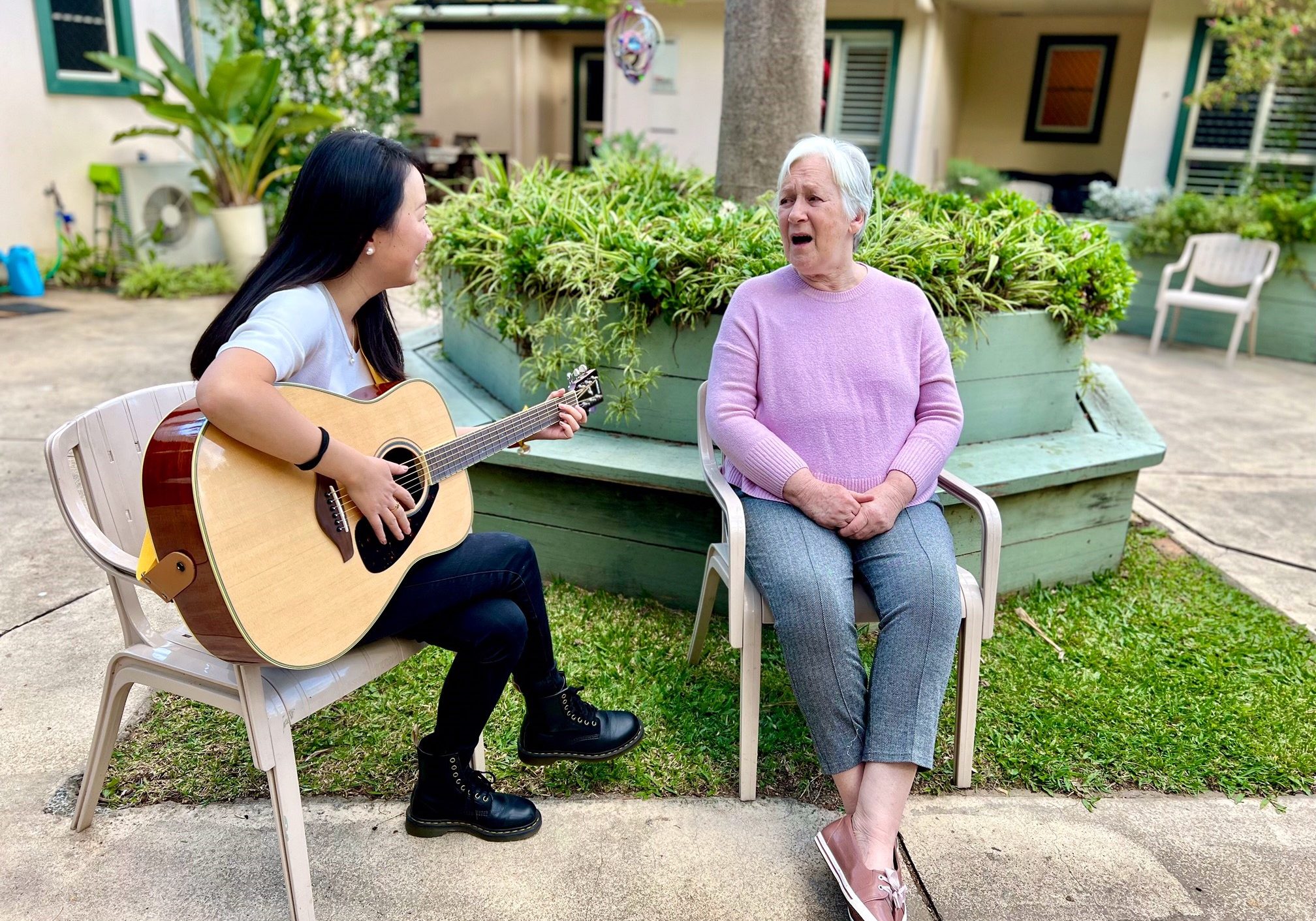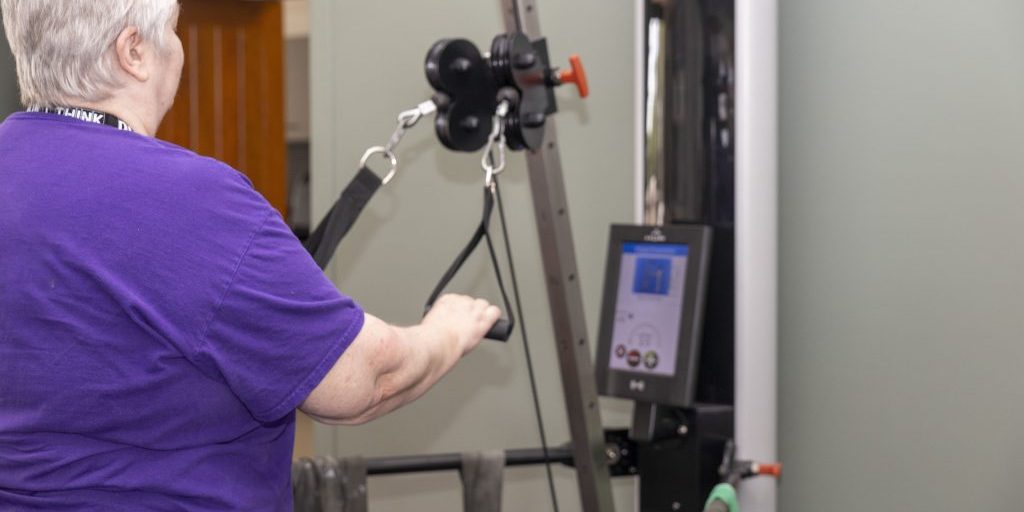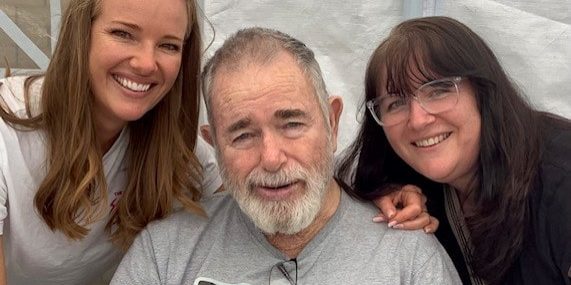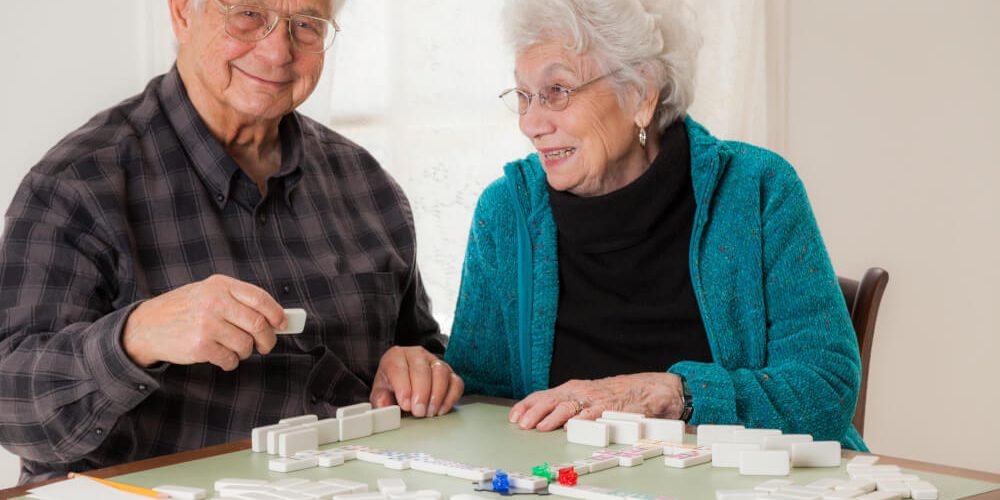Music therapy is a structured health treatment that uses music to improve an individual’s functioning and wellbeing. The therapy involves the use of live or recorded music, as well as singing, playing instruments and movement, to engage people.
Music therapy has been used to reduce the symptoms of a wide range of conditions, including mental health concerns, chronic pain, and neurological disorders such as Parkinson’s disease and dementia. A growing body of research supports the use of music therapy as an effective intervention for people living with dementia, to improve behaviour, anxiety and agitation symptoms[1]. As a progressive neurological disorder characterised by cognitive decline, memory loss, and changes in mood and behavior, dementia impacts more than 342,000 Australians.
While there are currently no treatments that will stop its progression, there are several effective approaches to manage it and improve quality of life. One approach is music therapy, which has been shown to provide numerous benefits for people with dementia.
What is music therapy?
Music therapy is a research-based allied health profession that can support the emotional, cognitive and social needs of a person living with a health condition. Conducted by a music therapist, it involves the use of therapy and music to help people to achieve their goals, including evidence-based benefits for individuals living with dementia. There are both active and receptive forms of music therapy. In active music therapy, participants produce music through improvisation, singing, songwriting or voice work. Receptive music therapy is guided listening to recorded or live music. Often the techniques are combined.
Why is music important for people living with dementia?
Music can be an important stimulus for people living with dementia, to connect them to their social lives and abilities. During the progression of neural impairment in dementia, the pathways in the brain for musical perception, emotion and memory are retained for longer than other executive functions. This means the nonverbal perception, awareness and appreciation of music remains, and music continues to evoke neural connections between the perception and action systems[1], even when a person’s language may be lost.
“The intriguing sensitivity to music exhibited by persons with dementia has been shown to have therapeutic purposes,” the research said.
Communication can be challenging for individuals with dementia, as they may struggle to find the right words or express themselves clearly. Music therapy has been shown to improve communication by providing a nonverbal means of expression and connection. People living with dementia who listen to music can also recall memories from their past, helping them to become calm.
How can music therapy support people living with dementia?
Medical research has demonstrated a range of benefits of music therapy for people living with dementia, including improved cognitive function, a reduction of behavioral and psychological symptoms, improved quality of life and a boost in communication. A 2022 research review found music therapy was effective to boost mood, improve apathy and communication and physical function for people living with dementia[1]. It found the treatment improved overall behavioural problems and emotional well-being, raising their overall quality of life. Mood and negative emotions of anxiety and depression and social behaviour improved. People experiencing mild Alzheimer’s Disease had improvements in their memory.
“Given the progressive nature of the disease’s serious detrimental effects on memory and thinking, it is not unreasonable that MT (or any intervention) might still be beneficial for memory in early stages,” the research said.
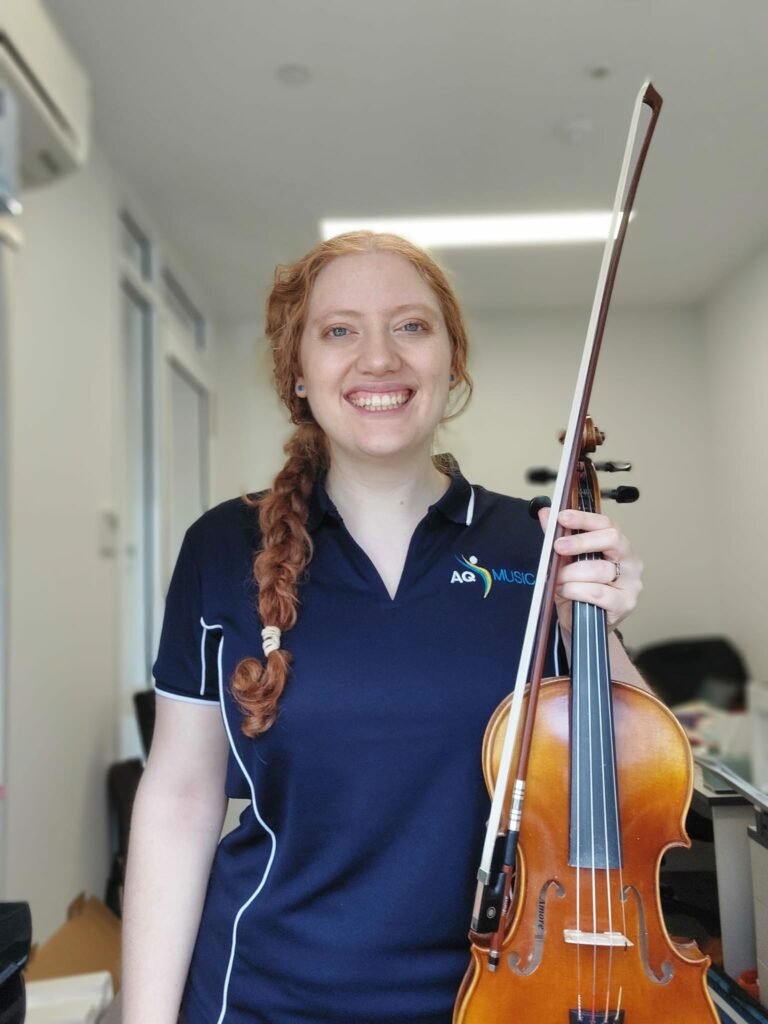 How is music therapy conducted?
How is music therapy conducted?
Music therapy is structured around an assessment, a goal-setting phase, and an evaluation. The assessment delves into the music preferences of the person, and their current abilities in terms of their communication, social connections, cognitive skills, physical capacity & behaviours.
Then, the musical therapist will work with the individual to determine their goals & objectives. These should be realistic, measurable & achievable. After the intervention over a series of weeks or months, there is an evaluation of its effectiveness. Studies have found short-term benefits for people living with dementia from music therapy[1].
Music therapy for dementia in Brisbane
Music therapy for dementia courses are available across the Brisbane region. AQ Health conducts classes with music therapists in Gordon Park, Ipswich, on the South Coast, and Upper Mount Gravatt. This is course will include singing, sensory exploration and improvisation with different instruments. People also get up and move to the music. It’s a friendly, welcoming environment to support each other and enjoy the music.
Supporting people living with dementia
These aged care services can support those living with dementia to preserve their mental and physical health, with personalised care. Music therapy is an evidence-based, non-invasive, low-risk intervention that can be tailored to meet the individual needs and preferences of each person with dementia, making it a flexible and personalised approach to care. Overall, the evidence-based benefits of music therapy for people living with dementia suggest that it is a valuable and effective intervention for managing symptoms and improving quality of life. As more research is conducted in this area, it is likely that music therapy will become increasingly important.
If you or a loved one is living with dementia, consider music therapy as a complementary approach to managing symptoms and improving quality of life. Consult with AQ Health or a trained music therapist to learn more about how music therapy can benefit individuals with dementia.
More Info & Session Times
For more information email aqhealth@alzqld.org.au or call 1800 692 743.


